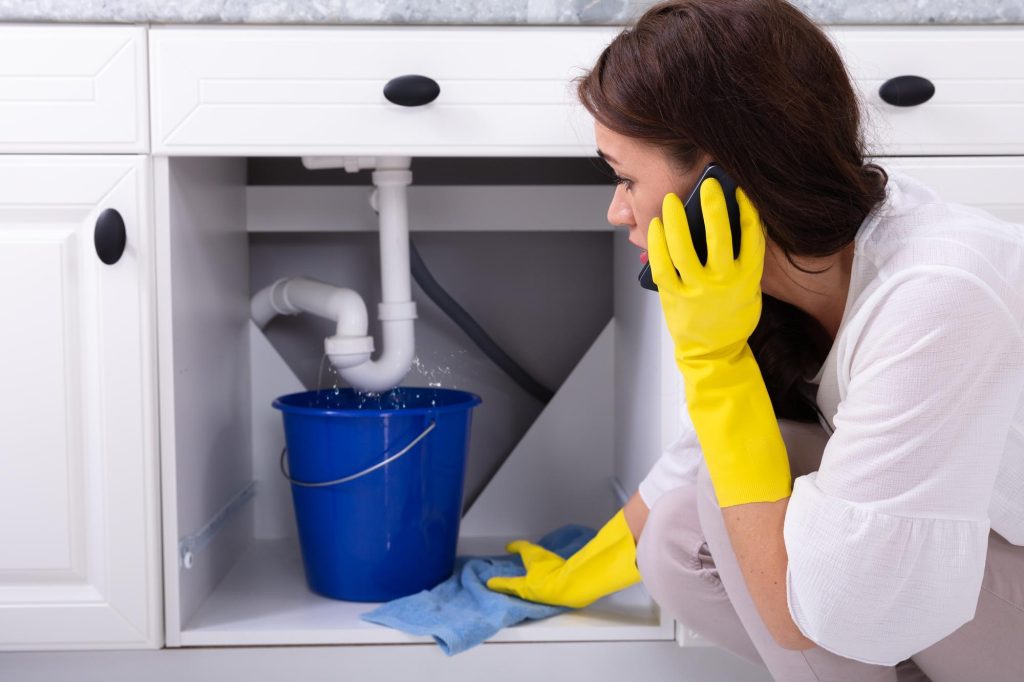If you’re a homeowner, then you know that plumbing emergencies can happen at any time. That’s why it’s important to have the number of a reliable emergency plumber saved in your phone contacts! Emergency plumbers are on call, day or night, to help fix your plumbing problems fast. This blog post will discuss what to do in case of a plumbing emergency. We’ll also provide some tips on how to minimize damage until the plumber arrives.
From understanding the common causes of plumbing emergencies to quick fixes that can minimize damage until the plumber arrives, we’ve got you covered. Burst pipes, clogged drains, and water heater malfunctions can throw a wrench into your daily life, but with the right knowledge and preparation, you can navigate these crises with confidence. So, read on to equip yourself with the essential information to tackle plumbing emergencies head-on and ensure your home stays safe and dry.
What is a plumbing emergency?
A plumbing emergency is a situation that can turn your tranquil home or bustling business into a chaotic mess in the blink of an eye. It encompasses a range of critical issues, all of which share one common trait: they demand immediate attention and resolution. Among the most pressing plumbing emergencies are broken pipes, which can unleash torrents of water and cause severe structural damage. Clogs in the drain system are equally troublesome, causing toilets to overflow and sinks to back up, creating unsanitary conditions that no one wants to deal with.
Moreover, backed-up sewage is a plumbing emergency that strikes fear into the hearts of property owners. The potential health hazards and odors associated with sewage backups make them not only distressing but also highly urgent issues. Lastly, water damage from leaks or flooding can wreak havoc on your property, leading to costly repairs and extensive clean-up efforts. Anything involving water has the potential to escalate into a hazardous situation if not addressed promptly, underscoring the importance of recognizing and responding to plumbing emergencies swiftly and effectively.
Why you should act fast:
When a plumbing emergency is left unattended, the consequences can be far-reaching and devastating for your home or business. Perhaps one of the most immediate and visually distressing outcomes is the extensive water damage that can result from flooding or leaks. Unchecked water can infiltrate every nook and cranny, seeping into walls, floors, and ceilings. It doesn’t discriminate; your cherished furniture, expensive flooring, and irreplaceable belongings are all at risk. Beyond the obvious material damage, stagnant water provides a fertile breeding ground for mould and mildew. These unwelcome guests can rapidly colonize your space, causing structural decay, emitting unpleasant odors, and posing health hazards for occupants.
In the case of sewage backups, the stakes become even higher. These incidents not only create unsanitary conditions but also contaminate surfaces with harmful bacteria. Exposure to such contaminants can lead to a range of health problems, making it imperative to address sewage emergencies promptly. The risks extend to gastrointestinal issues, skin irritations, and respiratory complications, especially for those with compromised immune systems. In sum, the potential for substantial damage to both your property and your well-being serves as a compelling reminder of the urgent nature of addressing plumbing emergencies as swiftly as possible.
What to do in an emergency?
The first step in any plumbing emergency is to shut off the water supply. This will help prevent flooding and further damage to your home. Your main water supply can usually be found near the front of the house or near a basement wall.
Next, it’s important to turn off the hot water system if you have one. This will minimize the amount of water that is spurting out from any broken pipes.
If you have a small leak, you can try to manage it by using a bucket or towel to soak up the water until a plumber arrives. For more serious leaks, you may need to turn off your electricity and gas supply as well.
It’s also important to open drains and taps outside the house to help reduce internal water pressure. This will help prevent any further damage until a plumber arrives.
Using chemical cleaners is not recommended, as they can cause further damage to pipes and other plumbing fixtures. It’s best to leave this job up to a professional plumber.
Checking electric appliances is also important, as they can be damaged by water. Try to keep them away from leaking pipes and any flooded areas.
It’s essential to clean up the mess and protect your belongings from further damage. This includes salvaging furniture and other items that may have been exposed to water or sewage. Taking photos of the damage is also recommended, as this can help you file an insurance claim or get a refund from your plumber.
Plumbing emergencies can be stressful and overwhelming for any homeowner, so call a plumber for immediate help. It’s also important to stay calm and follow these steps until a professional plumber arrives. Emergency plumbers are on call, day or night, to help deal with any plumbing issues. With the right steps taken and a reliable emergency plumber, you can be sure that your home will be protected from further damage in no time.

